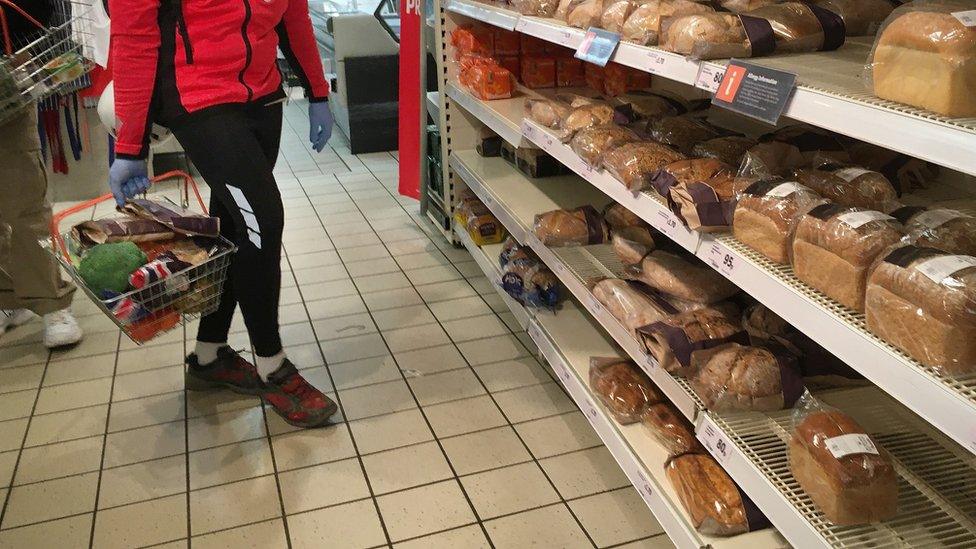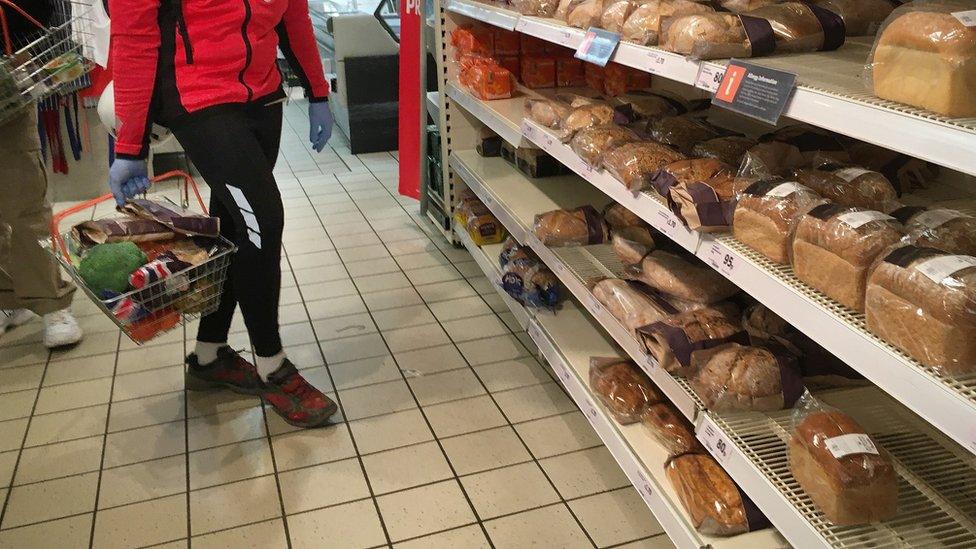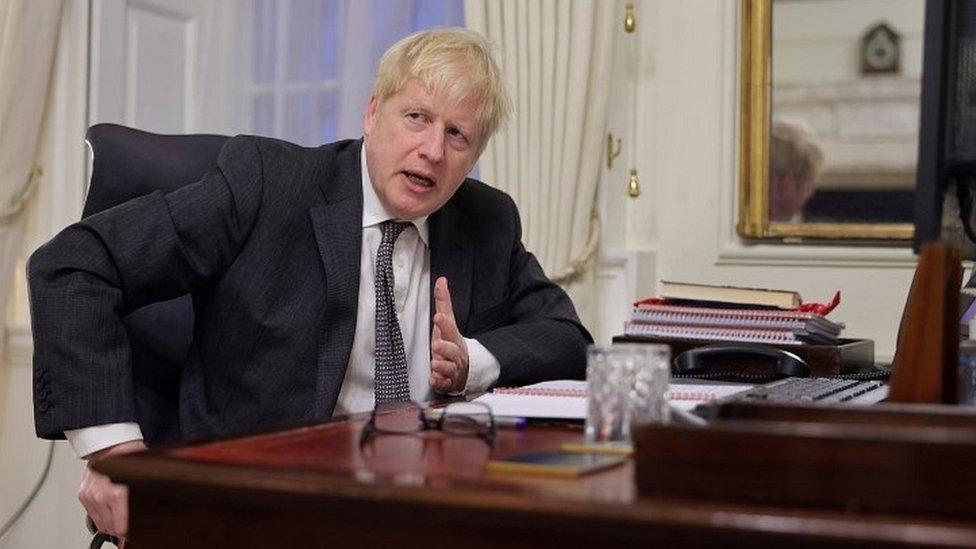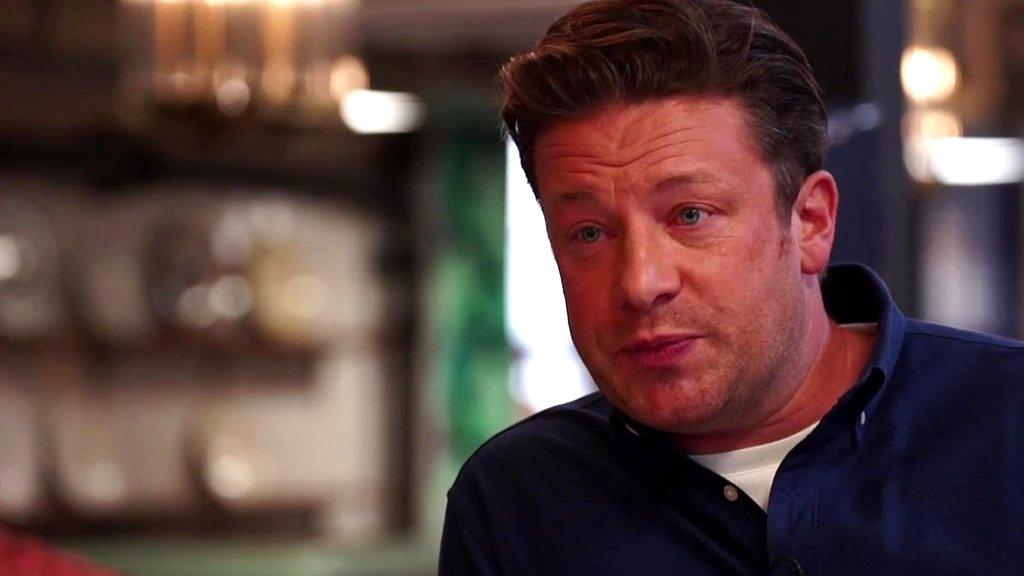Brexit food supply fears grow: 'It's too late, baby'
- Published
- comments

Food and drink supplies in the UK face more disruption after the end of the Brexit transition period than they did from Covid, the industry has said.
"There are 14 [working] days to go," the Food and Drink Federation's (FDF) chief executive, Ian Wright, told MPs.
"How on earth can traders prepare in this environment?" he added.
Noting that rules for sending goods from Welsh ports to Northern Ireland had only just been published, he said: "It's too late, baby."
Uncertainty over a deal and new border checks would make it difficult to guarantee the movement of food through ports without delays, he said.
Mr Wright was giving evidence to the Commons business committee on Brexit preparedness.
He said there was a big concern that the problems would "erode the confidence of shoppers in the supply chain", adding: "It has done very well over Covid and shoppers will expect the same thing over Brexit, and they may not see it."
'No clue'
"We can't be absolutely certain about the movement of food from the EU to the UK from 1 January for two reasons," Mr Wright said.
"One is checks at the border. The other is tariffs, and the problem with tariffs is, we don't know what they will be."
Mr Wright added: "With just 14 working days to go, we have no clue what's going to happen in terms of whether we do or don't face tariffs.
"And that isn't just a big imposition. It's a binary choice as to whether you do business in most cases. My members will not know whether they're exporting their products after 1 January, or whether they'll be able to afford to import them and charge the price that the tariff will dictate."

The basics
Brexit happened but rules didn't change at once: The UK left the European Union on 31 January 2020, but leaders needed time to negotiate a deal for life afterwards - they got 11 months.
Talks are happening: The UK and the EU have until 31 December 2020 to agree a trade deal as well as other things, such as fishing rights.
If there is no deal: Border checks and taxes will be introduced for goods travelling between the UK and the EU. But deal or no deal, we will still see changes.

Mr Wright warned that while he expected Kent and Operation Brock to work "reasonably well", he was less confident about ports such as Holyhead, with goods heading to Northern Ireland.
He called the Northern Ireland protocol a "complete shambles", adding: "The idea that you can prepare for something as big as the change that's going to happen is ridiculous, it's a massive toll."
Mr Wright added that 43% of FDF members who supply Northern Ireland have said they were not going to do so in the first three months of next year.
He told MPs that many companies had lost some of their customer base in the EU. "The problem is, if there's any disruption to supply, you lose your customer pretty quickly and you do not get them back," he added.
'Strategic accelerator'
Miles Celic, chief executive of TheCityUK, told the committee that up to a quarter of the UK's financial activity was EU-related and that in the worst-case scenario, about 40% of that business could be lost.
However, he added: "We've not seen this vast shift in jobs and activity."
Instead, Brexit had acted as a "strategic accelerator", with firms taking action such as restructuring EU-based offices as standalone operations. Even so, he warned: "This all comes ultimately at a cost."
Lloyd Mulkerrins of the Society of Motor Manufacturers and Traders said that if tariffs were levied on parts and finished vehicles, the UK's car industry was likely to see a sales decline of 20% to 30%.
Production would decline from as much as 1.6 million to just 800,000, he told the MPs.


Related topics
- Published10 November 2020

- Published8 December 2020

- Published9 October 2020
